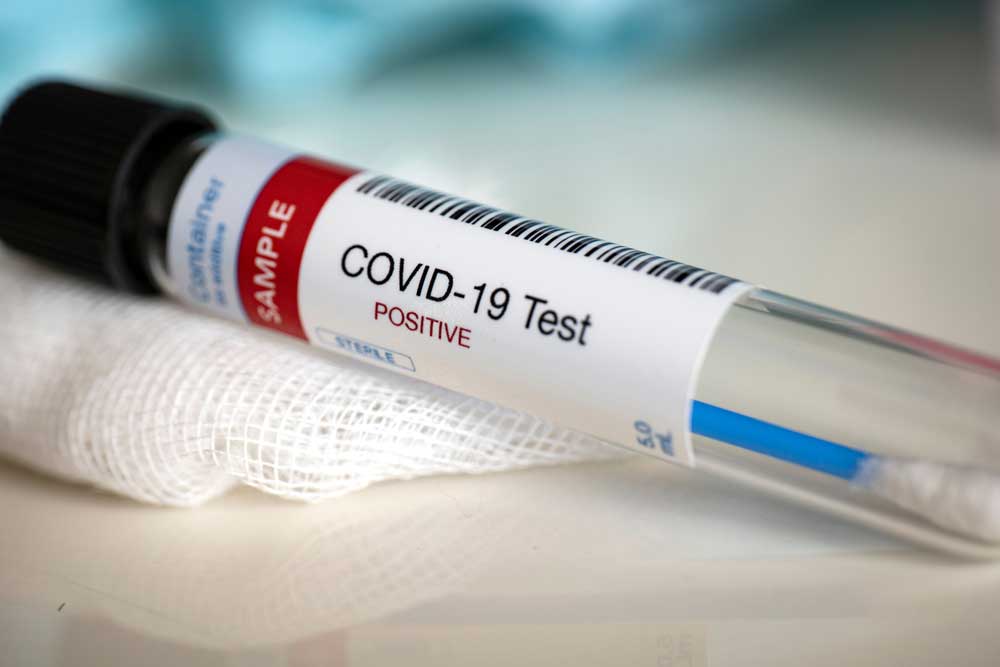Health workers will knock on 400 household doors each in 60 districts across the country later this month seeking blood samples for India’s first community survey for the new coronavirus as proposed by a medical panel over a month ago.
The Indian Council of Medical Research announced on Tuesday a survey to estimate the prevalence of the coronavirus at the community level in 60 districts, including six in Bengal, categorised into four groups based on their recorded incidence of the coronavirus disease.
The survey will tell health authorities what proportions, if at all, of households have already been exposed to the coronavirus. In Bengal, the survey will screen households in Calcutta, South 24-Parganas, East Midnapore, Jhargram, Bankura and Alipurduar.
The household survey is different from a surveillance plan announced by the Union health ministry on Monday that will screen samples from pregnant women, patients without respiratory symptoms and healthcare workers in hospitals in all districts.
“Samples from people in households will give us baseline (starting point) prevalence of the infection in the community,” Manoj Murhekar, director of the National Institute of Epidemiology, Chennai, a unit of the ICMR, told The Telegraph.
“We expect to conduct this survey over two or three weeks and have baseline prevalence information in three to four weeks,” Murhekar said.
Baseline prevalence would allow the health authorities to track trends over time through future surveys.
The survey will use a rapid antibody test developed by the ICMR’s National Institute of Virology, Pune, to look for anti-viral antibodies in one resident from each household. The presence of antibodies would mean that the person has been exposed to the coronavirus, even unknowingly.
The antibodies usually show up in patients’ blood several days after the infection, at times a week after symptoms, or after symptoms are already waning, or even in infected persons who did not develop significant symptoms.
“We’ll be able to assess prevalence even among patients with mild or no symptoms,” Murhekar said.
Although some public health experts have suggested that people who test positive for antibodies could be considered relatively safe from infections and could venture out with greater confidence than those without such antibodies, others point out that it is unclear how long infected persons are protected.
The health workers will draw venous blood samples from 400 randomly selected persons from 10 clusters in each district. Scientists have also randomly selected the 60 districts along with additional nine reserve districts, to represent four different levels of incidence of Covid-19.
“Some districts have high incidence of Covid-19, measured as per million population, while some districts have low incidence or no recorded incidence,” Murhekar said.
The health ministry on Tuesday recorded 3,604 new Covid-19 patients, raising the country’s total number of confirmed cases to 70,756, of whom 46,008 are in hospitals, 22,455 have recovered and 2,293 have died.
But almost all these confirmed cases have emerged through testing of contacts of positive cases or patients with severe acute respiratory illness or influenza-like illness either admitted in hospitals or living within containment zones in the vicinity of positive cases.
Public health experts have pointed out that such testing criteria focused only on contacts or patients with severe respiratory illness will likely miss patients who suffer only mild symptoms and who might not seek medical care.
Covid-19 patterns worldwide have suggested that 80 per cent of patients will have mild symptoms.
The survey will rely on over 300 health workers who had been engaged in a nationwide tuberculosis survey — now on hold — along with staff from state health departments, the national disease surveillance programme and the World Health Organization’s India office.

